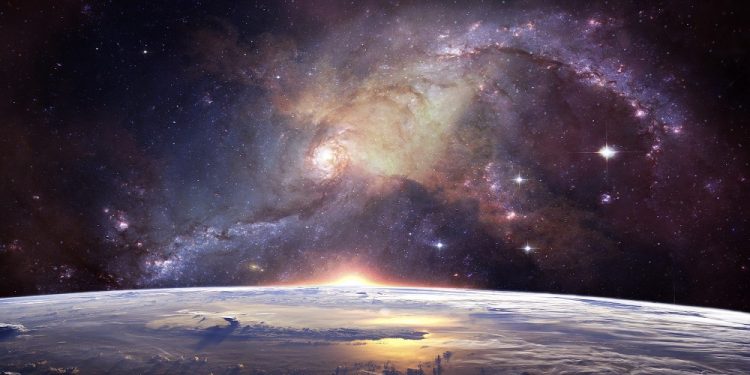
Top Science Holidays For Every Month Of The Year
If you look through our holiday calendar, you’ll see a lot of holidays dedicated to food. That’s because people love to celebrate food holidays and will take any opportunity to observe one of these holidays. Another thing you might notice is that there aren’t nearly as many holidays dedicated to science as there are to food.
We find that to be a shame. Science holidays are extremely important and not only help to inspire scientific curiosity and wonder in people but also help to promote scientific literacy. They also raise awareness of certain scientific issues and keep scientific achievements in people’s minds.
That’s why we feel that people should spend more time celebrating these holidays. Toward that end, we’ve decided to cover a science holiday for each month of the year. The following science holidays will hopefully inspire people to learn more about science and to spread their love of science to younger generations.
National Static Electricity Day (January 9th)
Although static electricity tends to be a nuisance to most people, it is actually important to learn more about it because it affects our lives in a number of different ways. Preventing ESD (electrostatic discharge) is an important consideration for industries that produce electronic components, and static electricity plays an important role in power production. It even affects our weather, so perhaps we all should take the time to learn more about it.
International Day of Women and Girls in Science (February 11th)
It’s important to get more girls and women interested in STEM (science, engineering, technology, and math), and this holiday is a great start toward that goal. Getting more girls and women interested in STEM may help promote gender equality, provide more diverse perspectives and experiences to the scientific community, and help close the gender pay gap. All good reasons for people to take the time to observe this holiday and introduce the next generation of women to the sciences.
Nano Days (Last Weekend in March)
Okay, this holiday is one that straddles March/April. It begins during the last weekend in March and continues until the first weekend in April. It’s a day that focuses on nanotechnology—you know, that technology that’s responsible for electronics, computers, medicine, material sciences, food and agriculture, transportation, and water treatment. In other words, everything we do in modern society is affected by nanotechnology.
National DNA Day (April 25th)
The field of genetics is important to us as human beings for a variety of reasons. It helps us to understand our own unique genetic makeup and provides us insight into our susceptibility to diseases and certain medical conditions.
That’s why this holiday is vital. Our knowledge of DNA has allowed us to come up with advanced treatments and to detect diseases earlier than they ever could be discovered before. But it will only yield results if we keep pushing the boundaries of DNA research.
National Space Day (First Friday of May)
National Space Day, happening on the first Friday of May, seems like a great excuse to learn more about space. It’s still a mystery to all of us. Right now, humanity has explored less than 4% of the observable universe. That’s just a drop in the bucket. We’re not even sure what exists in the dark reaches of our galaxy, so we definitely need to do more exploration.
International Asteroid Day (June 30th)
Asteroids are the rocky remnants of the creation of our solar system and can be found circling our sun. They come in a variety of sizes and are made of different materials. And sometimes, they end up entering our atmosphere and changing history forever. Fortunately, that doesn’t happen very often. There are currently scientific efforts working toward keeping future asteroids from striking Earth and ruining all of our days. And here’s a day dedicated to them.
Space Exploration Day (July 20th)
Space exploration is vitally important. Exploration of our solar system and beyond helps to advance scientific knowledge, create technological innovation, and further climate and earth observation studies. It also affects a wide variety of other fields including planetary defense (we did just talk about asteroids, didn’t we?), colonization of other worlds, and inspiring science literacy in future generations.
Pluto Demoted Day (August 24th)
Prior to 2006, Pluto was considered our solar system’s ninth planet, and then poof! It was demoted to a dwarf planet. That was a bummer to many of us, but it also gets us thinking. For over eight decades, Pluto was considered to be a planet when it was really a dwarf planet. What does that mean to us now? It means that we still have a whole lot to learn about this icy planet at the edge of our solar system. This holiday is a day to pursue more knowledge about this dwarf planet, as well as other dwarf planets that exist out there such as Eris.
Astronomy Day (September 22nd)
Astronomy is extremely important for all of us, so we all should take the time to celebrate Astronomy Day. It helps us understand the universe better, improves our scientific knowledge, and helps produce technological innovations. It also happens to be a lot of fun. Don’t believe us? Well, the only way to find out is to grab a telescope on this day and explore the heavens!
Ada Lovelace Day (October 10th)
Ada Lovelace is commonly considered to be the first computer programmer. She worked on Charles Babbage’s general-purpose computer, the Analytical Engine, in the mid-19th century. Although her work often went unnoticed during her lifetime, it would gain prominence with the rise of computer science during the mid-20th century.
Carl Sagan Day (November 9th)
Carl Sagan was an American astronomer, author, and science communicator who helped to make the concepts of science exploration and astronomy more accessible to the general public. He helped to popularize science, helped pioneer the search for extraterrestrial life, and made significant contributions to planetary science.
Grav Mass Day (December 25th)
Since this holiday falls on Christmas Day, a lot of people probably aren’t going to feel like celebrating it, but for those who do, it’s going to be really heavy (that’s a gravity joke, by the way)! This is a day that celebrates gravity—one of the most fundamental forces of our universe.
It’s also something that we still don’t understand, at least not completely. This is a great day to ponder the nature of gravity, how gravitational waves work, and gravity at extreme scales. It’s also a pretty good day to think about dark matter, dark energy, and quantum gravity.
As promised, we delivered a science holiday for every month of the year. It’s our sincere hope that these holidays will encourage more people to think about science and the effect it has on their lives. After all, without science, we wouldn’t have all of the modern technology that we currently enjoy.








